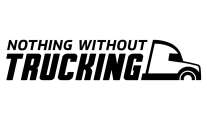Opinion: Trucking Is Up to the Challenge!
By David J. Osiecki
Senior Vice President
Policy and Regulatory Affairs
American Trucking Associations
This Opinion piece appears in the Jan. 31 print edition of Transport Topics. Click here to subscribe today.
In a startling about-face, the Federal Motor Carrier Safety Administration has determined, in its new proposed hours-of-service regulations, that critical elements of the current HOS rules pose safety and health risks that must be addressed. Amazingly, those very same elements (the 11- and 34-hour provisions) have been previously described by the agency (in three separate rulemaking proceedings) as not only providing the trucking industry critical flexibility, but as having no negative effect on highway safety.
Indeed, FMCSA, which recognized the provisions to be the most popular with drivers, found them to have beneficial safety and health effects by allowing drivers more control over their schedules, greatly reducing their stress, and permitting them more time home. In those rulemakings, agency staff persuasively argued the value and effectiveness of an integrated set of safety rules first put in place in early 2004, following a decade of data collection and fatigue-related research. The validity of the agency’s conclusions in those prior proceedings has been repeatedly confirmed by the trucking industry’s safety performance since 2004.
So why does an agency reverse its position so thoroughly and dramatically in less than two years? The answer is clear: The political winds are blowing in a different direction.
As an industry colleague commented to me the day after the Department of Transportation and FMCSA began whistling their new HOS tune, “Policy should be driven by facts — not politics; this is especially true when it relates to saving lives.” He was spot on. The challenge facing the trucking industry, and the host of other businesses and industries that rely heavily on safe, efficient truck transportation, is convincing current DOT policymakers to rely on facts, published and peer-reviewed science, and appropriate cost-benefit analyses with evidence-based assumptions to justify HOS rule changes. Make no mistake, the trucking industry and its supply chain partners are up to the challenge.
ATA has initiated a multifaceted campaign to lead the fight against these complex, unjustified and unnecessary proposed changes. Central to the campaign is ATA’s SafeDriverHours.com website.
It includes:
• Facts on industry safetyperformance.
• Information and educational materials about the proposed rules.
• Information for professional drivers, carriers, and shippers/receivers on likely effects.
• And most important, easy-to-follow instructions on how to communicate comments and objections to FMCSA.
ATA and its affiliates also are engaging the press to spread the industry’s “don’t break what’s not broken” message. For instance, we are strategically issuing news releases highlighting various elements of the HOS proposal that point out the use of questionable data and assumptions.
In addition, ATA is leading a large Washington, D.C.-based coalition of like-minded organizations that are now mobilizing their members to communicate this simple message to Washington lawmakers: After seven years of operational experience, the facts demonstrate that the current rules are working. Trucking is doing its job of moving America’s freight, truck mileage is up and truck safety metrics are the best they’ve ever been. Contrary to the agency’s theme, data collected by FMCSA in recent years demonstrates a solid relationship between HOS compliance and low crash rates.
However, the most important near-term component of our campaign to retain the current hours of service rules is industry involvement. Trucking companies and our industry partners must continue to provide DOT and FMCSA leadership with safety facts and operational data that leave no room for argument about the effectiveness of the current HOS rules and the negative consequences of changing them. In short, we need to build a documented record in the rulemaking docket. The size, scope and quality of this administrative record will be critical to our campaign in the event we need to take our case to the courts.
Knowing the many proud members of the trucking industry, their character and resolve, I am confident we will rise to this challenge.
ATA, a national trade federation for the trucking industry based Arlington, Va., with affiliated associations in every state, owns Transport Topics.




